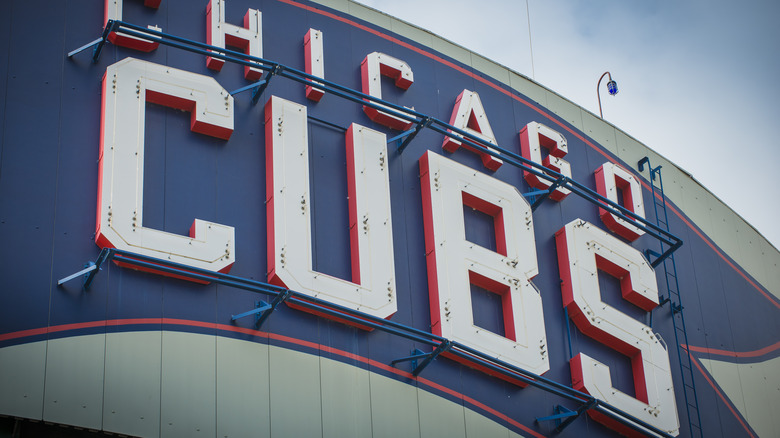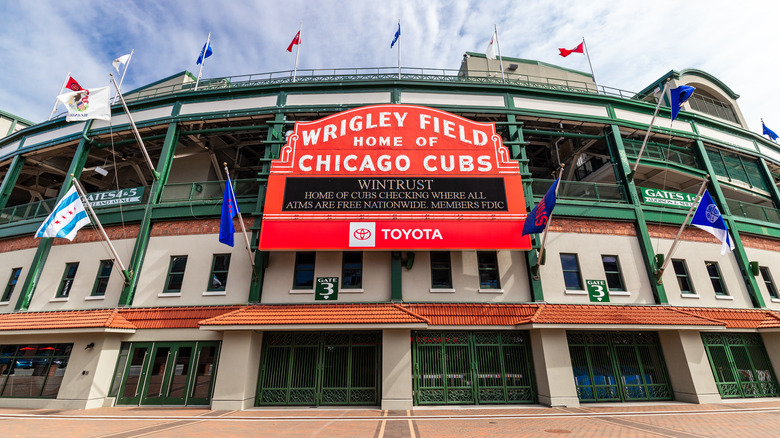This Is How The Chicago Cubs Got Their Name
One of the most storied franchises in the history of Major League Baseball is the team that has, for much of its history, called the North Side of Chicago its home. Wrigley Field, the team's home since 1916, is widely considered one of the most beautiful and iconic of MLB's ballparks. The men who have played for the team over the decades include some of the best to ever take the field: Ryne Sandberg, Ernie Banks, Cap Anson. And in 2016, the Cubs won the World Series, putting an end to a century-plus-long story of extended mediocrity and heartbreak — and ending a drought that began after the 1908 championship win.
For most of their century and a half of existence, the team has been known as the Chicago Cubs, a term bestowed on them by a newspaper writer, as Major League Baseball notes. The word "cub" suggests youth and cuteness, such as a wolf cub or lion cub, and though no one really wants their sports team to be associated with helplessness, sometimes nicknames stick. In the case of the Chicago National League Ball Club, what may have been intended as a pejorative has been the team's moniker for a century.
The 1902 Chicago North Side team was young and inexperienced
When the team that would eventually come to be known as the Chicago Cubs took the field for the first time as a charter member of Major League Baseball's inaugural season in 1876, they were known as the Chicago White Stockings, according to Baseball-Reference. They would go through a couple of other names over the next few decades, but by 1902 another Chicago team had taken on the name White Stockings. To this day, the Chicago White Sox still use a variant of that name and, as Major League Baseball notes, the new expansion team on the South Side was creating headaches for the existing team on the North Side. Specifically, the team's better players had headed for greener pastures in the upstart American League, leaving the North Siders with a young and inexperienced team. Chicago Daily News reporter Fred A. Hayner wrote that then-manager Frank Selee would have a tough row to hoe considering the new makeup of his team. "Selee will devote his strongest efforts on the team work of the new Cubs this year," Hayner wrote.
So why did "Cubs" stick when other terms of endearment came and went? It's difficult to say, but it's possible the newspaper industry, which came up with the name in the first place, contributed to its staying power. Simply put, "Cubs" takes up less space in a headline and, thus, made for less work for the typesetters of the day, notes Major League Baseball.

